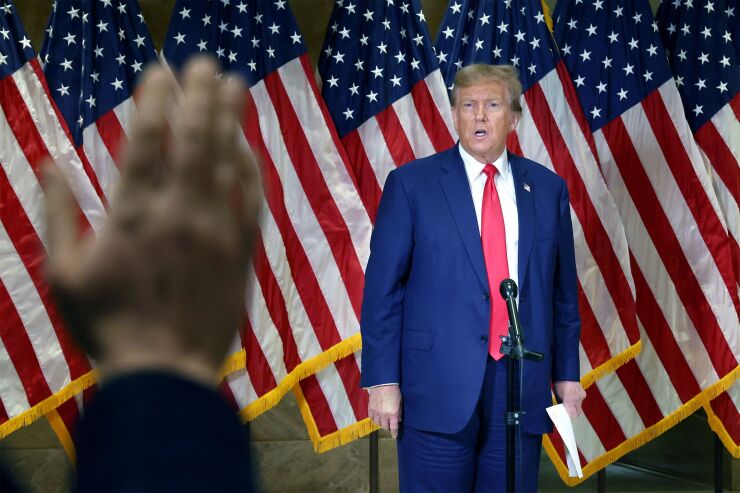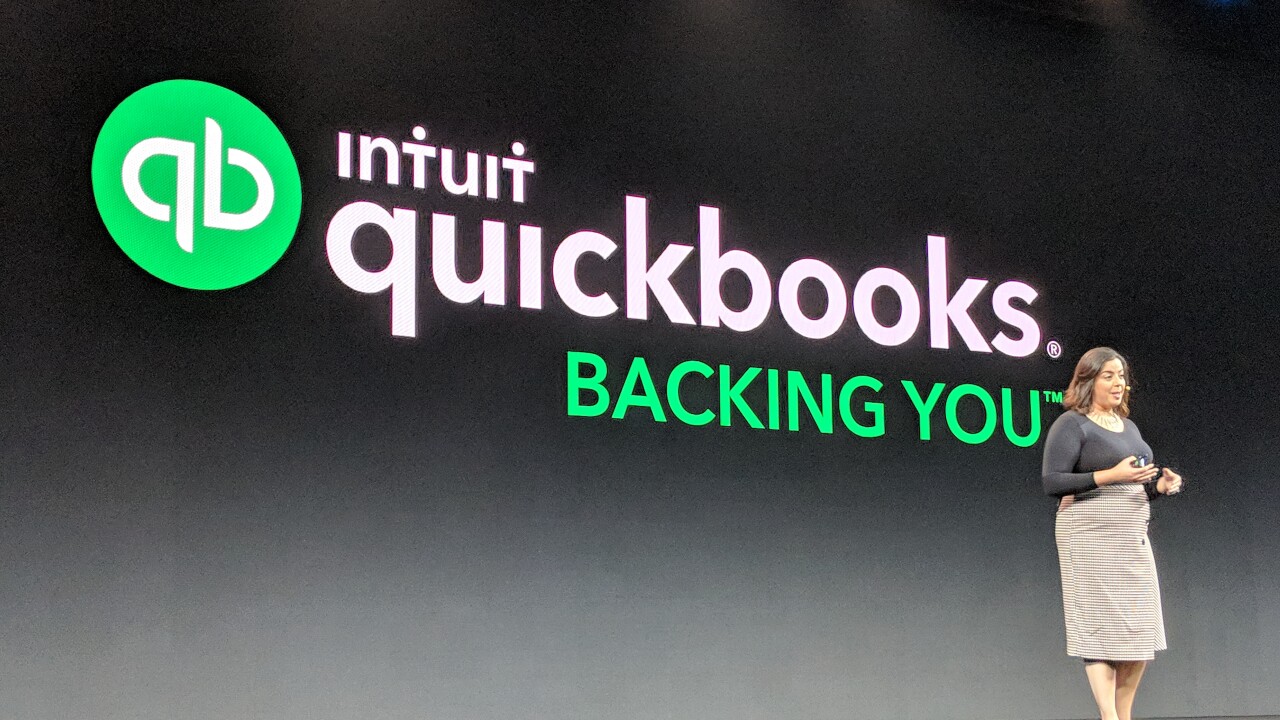The Thursday finale of New York's $370 million civil fraud trial against Donald Trump provided the former president and Republican frontrunner with his latest opportunity to steal the spotlight.
As lawyers for New York Attorney General Letitia James delivered closing arguments in a Manhattan courtroom where the trial played out for almost 11 weeks, Trump's seat at the defense table was empty. He'd left after listening to his lawyers' closing arguments, and shifted his attention to the deeply divided and embittered court of public opinion.
With the high-stakes hearing still underway, Trump's motorcade arrived at a hastily scheduled press conference in the marble lobby of his 40 Wall Street skyscraper less than a mile away, where members of the media were far outnumbered by a sudden gathering of Trump fans. They listened quietly as Trump ripped into James.
"She's got serious Trump-derangement syndrome, there's no question, Letitia James, the corrupt attorney general of New York," Trump said against a backdrop of carefully arranged American flags. "They have no case, it's a shame that a thing like this is able to happen."

Trump turned his latest court appearance into another campaign event just four days before the first Republican caucuses in Iowa, where he's the leading candidate to be the party's nominee in 2024. And Trump has used other court cases — including four criminal prosecutions against him — to promote his bid to return to the White House.
State's case
In New York, the state sued Trump, claiming he inflated the value of his assets for more than a decade to get better terms on hundreds of millions of dollars in loans. Justice Arthur Engoron, who heard the case without a jury, has already held Trump liable for fraud, so the trial was focused on six remaining claims as well as penalties.
The judge said Thursday he'll aim to deliver a verdict before Jan. 31. He must decide if Trump intentionally inflated his annual financial statements by billions of dollars a year to dupe Deutsche Bank AG and other lenders into giving him better terms on loans, reaping $370 million in "illegal profit" over more than a decade.
"It's a witch hunt in the truest sense of the word, it's election interference," Trump said at his press conference.
The media event was effectively Trump's personal closing statement, which he'd attempted to deliver in court earlier before Engoron
"This is not consumer fraud, it's a fraud on me," Trump told the judge after closing statements from his lawyer, Christopher Kise.
'Control your client'
After about six minutes, Engoron told Trump he had one minute left because the lunch break was about to begin.
"You can't listen for more than one minute," Trump said to the judge, and kept on talking.
"Mr. Kise, please control your client," Engoron said. "This should have been done differently," the judge said, before he got up and walked out of the courtroom.
There were fireworks during the hearing even without Trump present. Arguing erupted between state lawyer Kevin Wallace and Kise when Kise interrupted him twice in two minutes.
"Chris, stop!" Wallace yelled at Trump's lawyer. "We didn't interrupt your presentation, now you sit and listen to ours."
During his closing statement, Wallace told the judge that Trump and his two eldest sons should be held liable for his company's statements of financial condition and that the former president should be ordered to pay $370 million in penalties.
"Mr. Trump was the person who was responsible," Wallace said. "The buck stopped with him so he was responsible for all of the conduct to falsely inflate asset values."
Wallace, using a PowerPoint titled "Fraud was central to the operation of the Trump Organization," argued Trump was motivated to inflate his assets to get loans because he was burning through cash while working on the development of the Doral golf course in Florida, the Old Post Office Hotel in Washington, D.C. and other projects.
Wallace insisted the Trump Organization's liquidity "plummeted" between 2014 to 2016 as Trump began renovating the Old Post Office and used $60 million for his campaign.
"These low interest rates were secured by fraud," Wallace said. "If you're rich enough, you're going to be allowed to do it."





